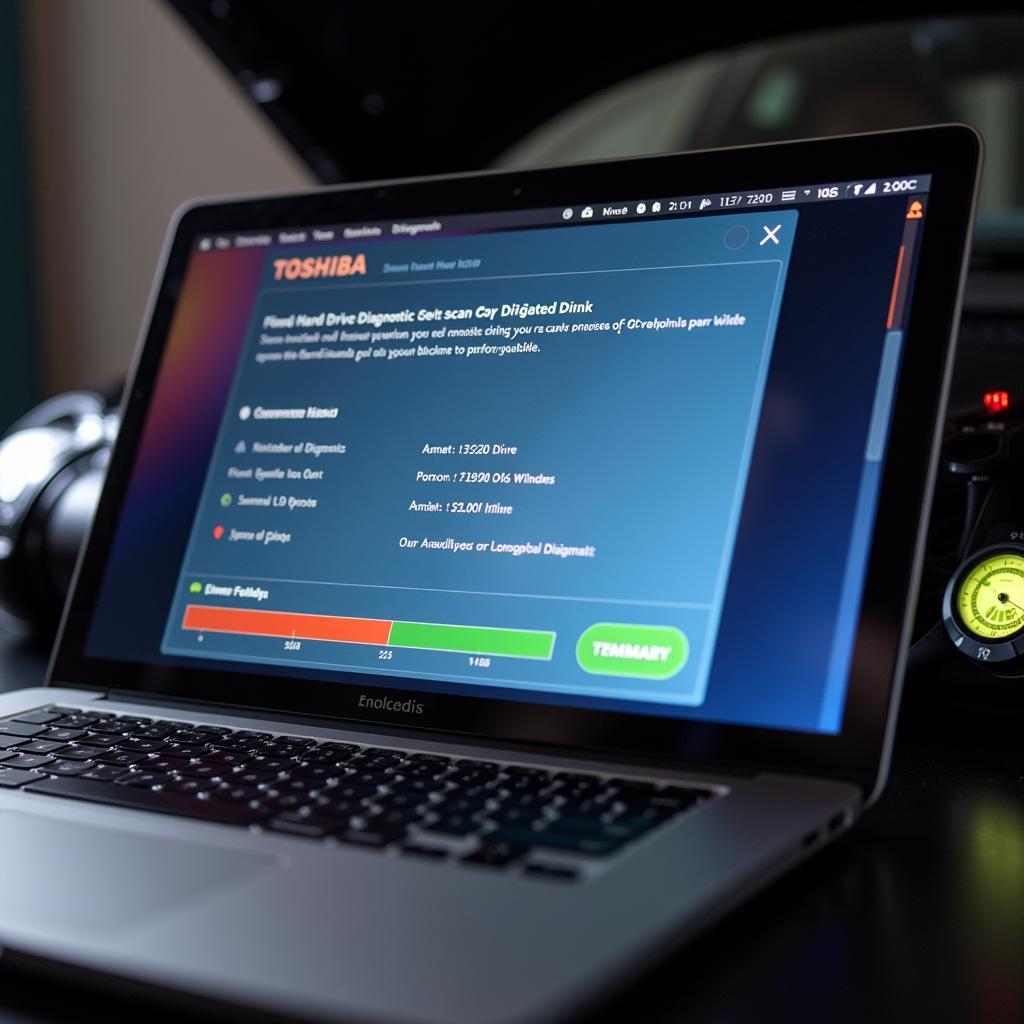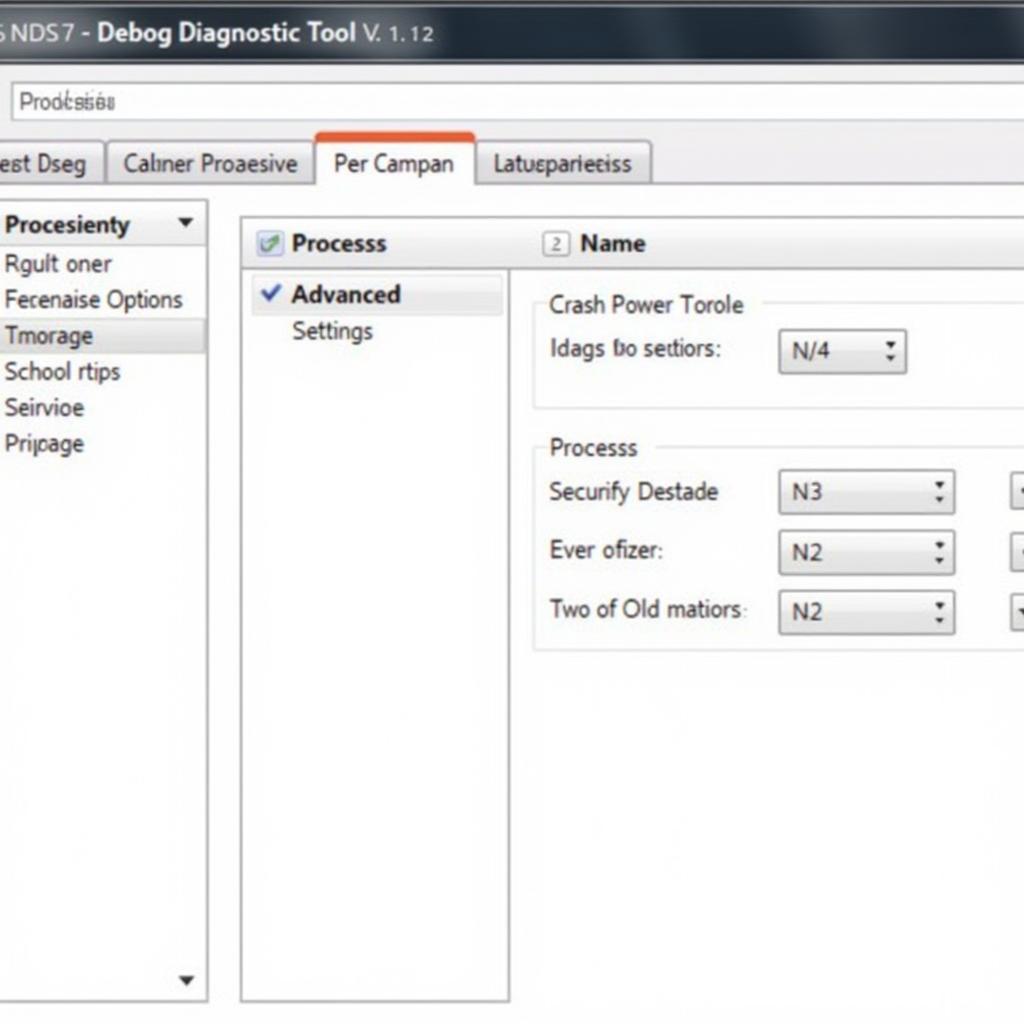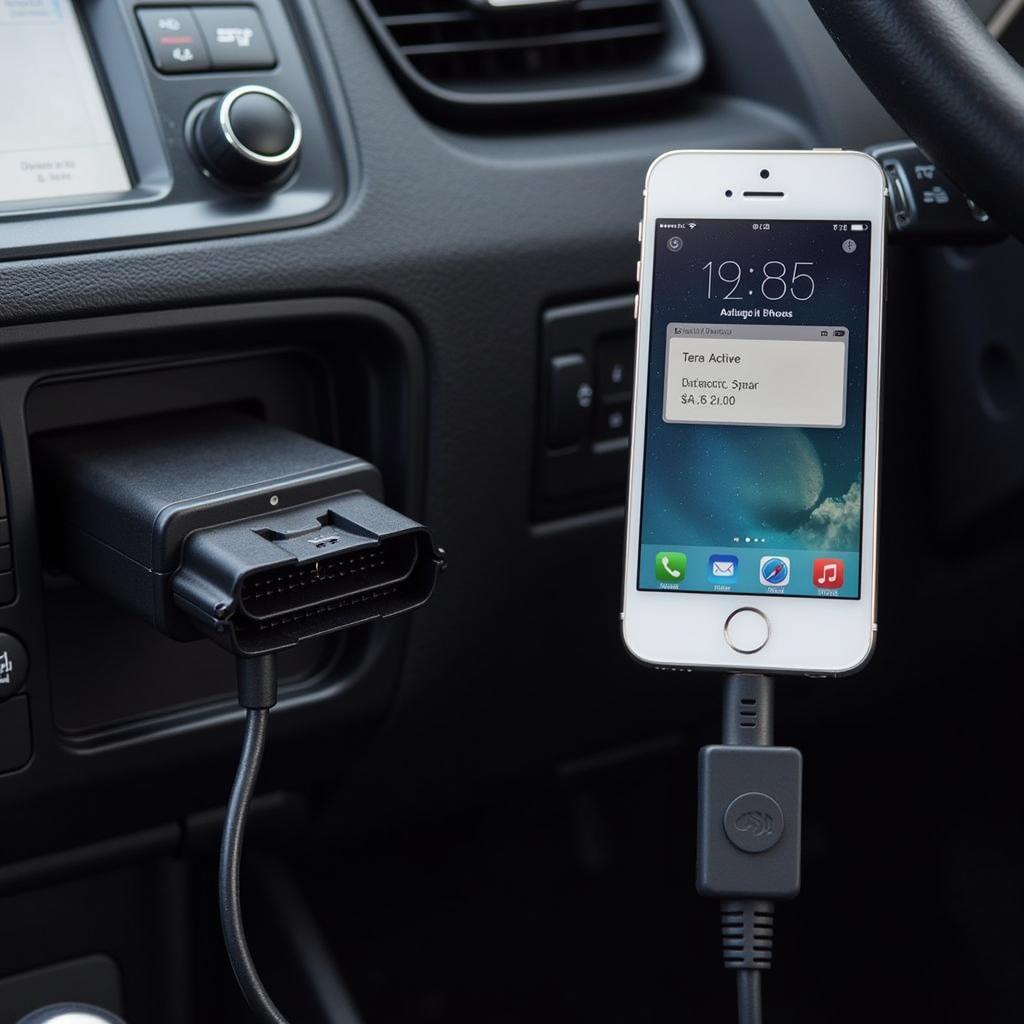Understanding the ins and outs of your Honda CRV’s performance just got easier. Whether you’re a seasoned mechanic or a proactive car owner, having the right diagnostic tool for honda crv can be a game-changer. This guide will delve into the world of Honda Crv Diagnostic Tools, empowering you to diagnose and potentially fix issues with confidence.
Why You Need a Honda CRV Diagnostic Tool
Imagine this: your check engine light flashes ominously. In the past, this meant a trip to the mechanic and a hefty bill. However, with a Honda CRV diagnostic tool, you can decipher those cryptic codes yourself.
These tools act as a direct line of communication with your car’s computer system, translating complex data into understandable terms. This allows you to:
- Identify the root cause of warning lights: Go beyond a blinking light and pinpoint the exact problem area.
- Read and clear fault codes: Not only can you see the error codes, but you can also reset them after addressing the issue.
- Monitor live data streams: Observe real-time performance metrics like engine RPM, coolant temperature, and oxygen sensor readings.
- Perform specific system tests: Depending on the tool, you can conduct tests on components like ABS, airbags, and transmission.
Choosing the Right Diagnostic Tool for Your Needs
Navigating the market for Honda CRV diagnostic tools can feel overwhelming. Here’s a breakdown to simplify your decision:
1. Code Readers
These entry-level tools are perfect for reading and clearing basic engine fault codes.
Pros:
- Affordable and user-friendly.
- Ideal for DIY enthusiasts and addressing simple issues.
Cons:
- Limited functionality beyond basic code reading.
- May not be compatible with all vehicle systems.
2. OBD-II Scanners
A step up from code readers, OBD-II scanners offer more advanced features like live data viewing and some system-specific tests.
Pros:
- More comprehensive diagnostics than basic code readers.
- Offer a good balance between price and features.
Cons:
- Functionality can vary significantly between models.
- May require some technical knowledge to interpret data.
3. Professional-Grade Scan Tools
These tools are the gold standard for mechanics and serious DIYers, providing in-depth diagnostics, advanced programming capabilities, and access to manufacturer-specific information.
Pros:
- Unparalleled diagnostic depth and functionality.
- Can perform complex tasks like module coding and adaptations.
Cons:
- Significantly more expensive than other options.
- Require a high level of technical expertise.
Key Features to Consider
When selecting a diagnostic tool, keep these factors in mind:
- Compatibility: Ensure the tool is compatible with your specific Honda CRV model year.
- Functionality: Determine what features are most important to you, be it basic code reading or advanced system testing.
- User Interface: Choose a tool with an intuitive interface that’s easy to navigate.
- Updates: Opt for a tool that offers regular software updates to maintain compatibility with newer vehicle models.
“Investing in the right diagnostic tool is like having an x-ray vision for your Honda CRV.” – John Smith, Senior Automotive Engineer
Beyond Diagnostics: Maximizing Your Tool’s Potential
A diagnostic tool can be a valuable asset for preventative maintenance:
- Regular System Checks: Periodically scan your vehicle for potential issues before they escalate.
- Monitor Performance Data: Keep an eye on essential parameters to identify early signs of component wear.
- DIY Repairs: Armed with accurate diagnostics, you can confidently tackle some repairs yourself, saving time and money.
Common Honda CRV Issues You Can Diagnose
Several common problems can trigger warning lights in your Honda CRV. A diagnostic tool can help identify issues such as:
- Oxygen Sensor Malfunction
- Catalytic Converter Issues
- EVAP System Leaks
- Misfire Detection
- Transmission Solenoid Problems
Unlocking the Power of Knowledge
While a diagnostic tool for honda crv is a powerful tool, it’s most effective when paired with knowledge. Utilize online resources, repair manuals, and forums to learn more about your vehicle and the specific codes you encounter.
Conclusion
A Honda CRV diagnostic tool is an indispensable asset for any owner or mechanic. By understanding your needs, researching available options, and embracing the power of information, you can take control of your vehicle’s health and keep it running smoothly for years to come.
Need expert advice on choosing the right diagnostic tool? Contact ScanToolUS at +1 (641) 206-8880 or visit our office at 1615 S Laramie Ave, Cicero, IL 60804, USA. We’re here to help you find the perfect tool for your Honda CRV.
FAQ
1. Can I use a generic OBD-II scanner on my Honda CRV?
While generic scanners can read basic engine codes, they may not access all systems or provide manufacturer-specific information.
2. Are there any free Honda CRV diagnostic tools available?
Some smartphone apps offer basic code reading capabilities, but their functionality and accuracy can be limited.
3. Do I need a professional-grade tool for basic maintenance?
For routine maintenance like oil changes and brake inspections, a basic code reader or OBD-II scanner is usually sufficient.
4. Can a diagnostic tool fix problems in my Honda CRV?
Diagnostic tools primarily identify issues. While some offer reset capabilities, actual repairs may require mechanical intervention.
5. How often should I scan my Honda CRV for codes?
It’s recommended to scan your vehicle for codes at least once a year or whenever you notice unusual performance.
6. Where can I find reliable information about Honda CRV fault codes?
Online forums, repair manuals, and manufacturer websites are excellent resources for interpreting fault codes.
7. Is it worth investing in a diagnostic tool if I’m not mechanically inclined?
Even without advanced mechanical skills, a basic diagnostic tool can empower you to understand your vehicle’s health and make informed decisions about repairs.



